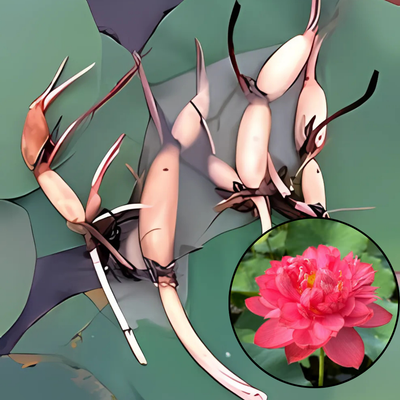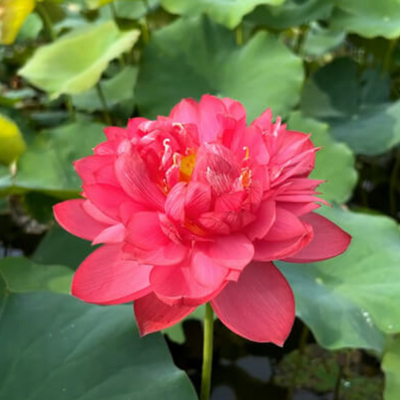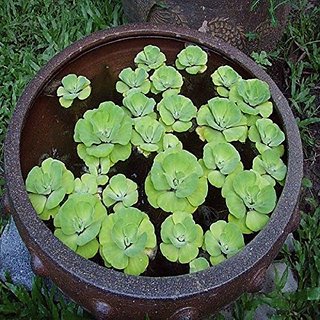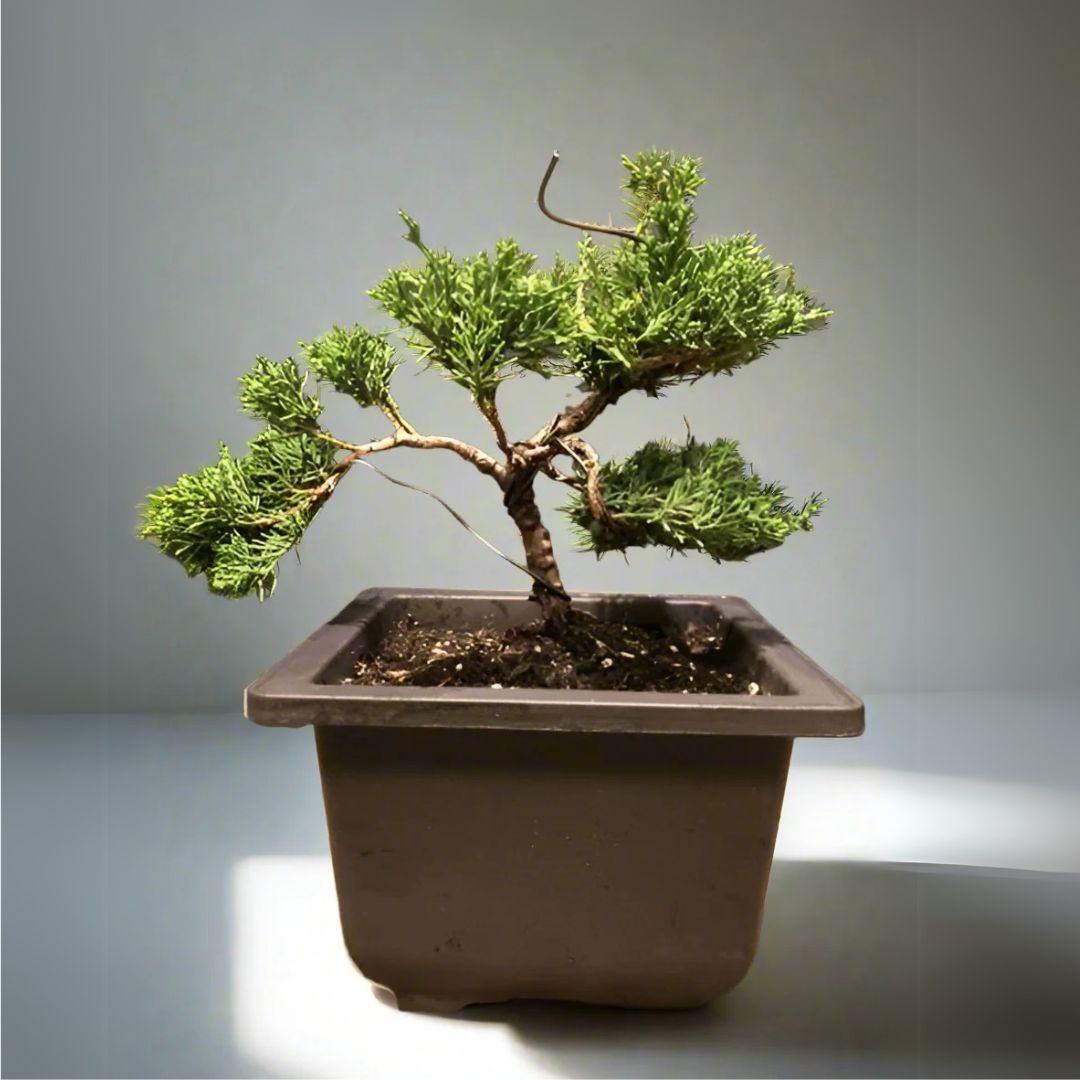
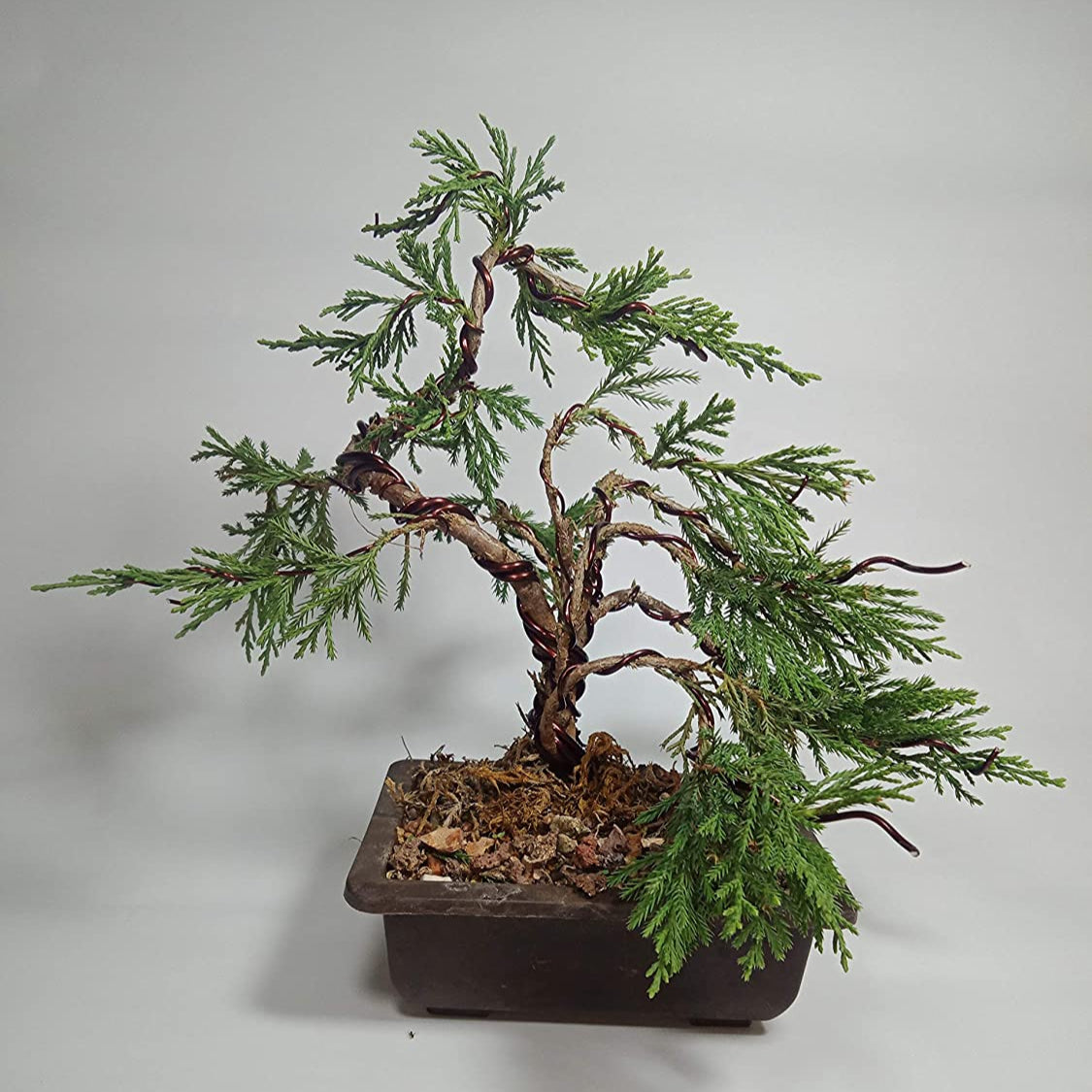
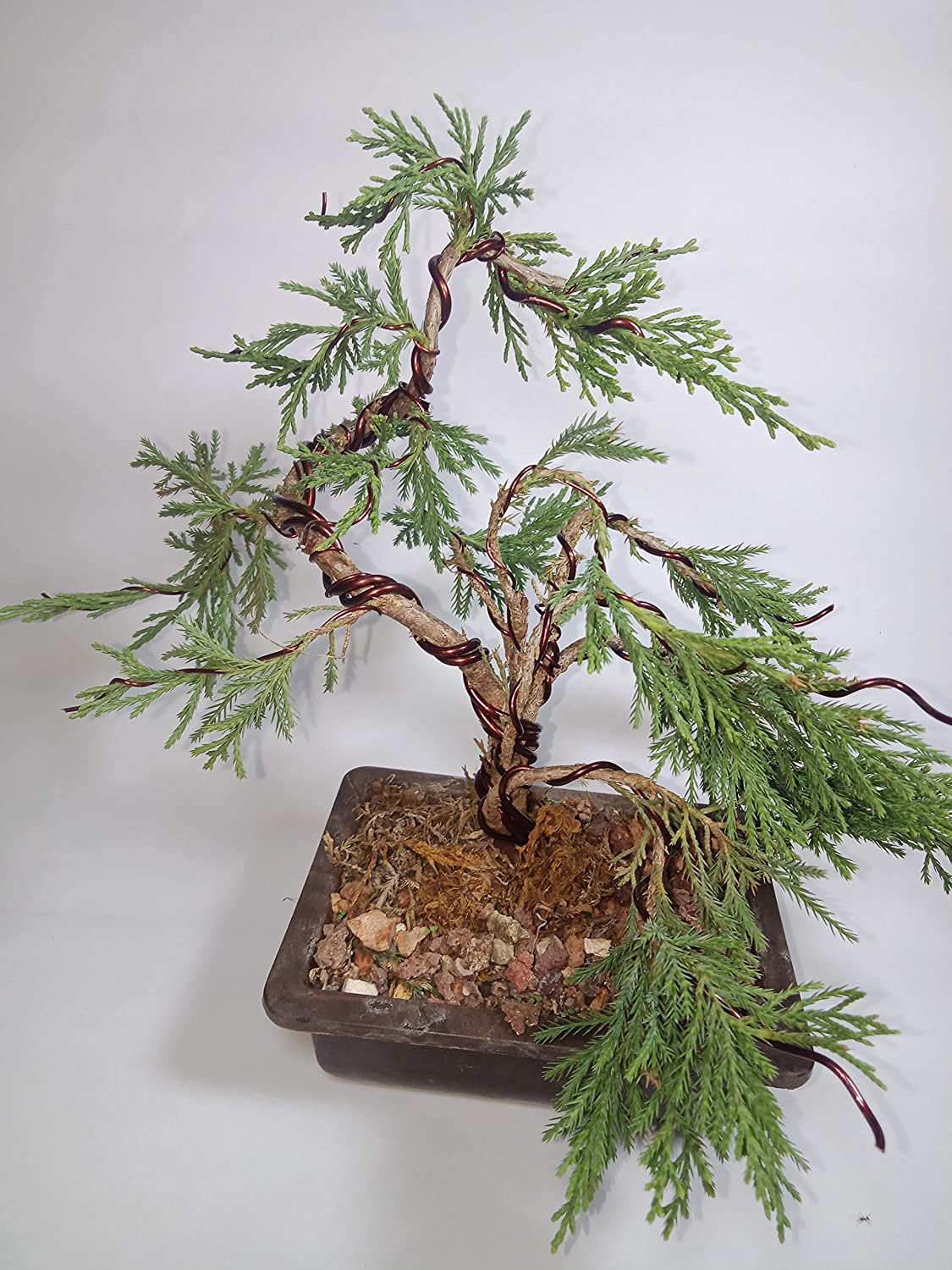
Chinensis Juniper Live Plant Sapling for Bonsai Trainning
Guaranteed Safe Checkout
Discovering the Enchanting Chinensis Juniper: A Timeless Symbol of Elegance and Resilience
About Chinesis Juniper Plant
Nature's artistic craftsmanship is beautifully exemplified in the Chinensis Juniper, a captivating evergreen shrub that effortlessly merges elegance and resilience. With its rich history, unique characteristics, and versatile applications, the Chinensis Juniper has found its way into the hearts and gardens of horticulturists, landscapers, and nature enthusiasts alike. In this article, we will delve into the intriguing world of the Chinensis Juniper, uncovering its origin, distinct features, care requirements, and the many reasons why it continues to be cherished across the globe.
Origin and Heritage
- The Chinensis Juniper, scientifically known as Juniperus chinensis, is native to China, Japan, and Korea. Its history dates back to ancient times when it was revered for its symbolism and use in traditional herbal medicine.
- Regarded as a sacred tree in Japanese Shinto and Chinese Taoist rituals, this juniper species has been an integral part of cultural celebrations and ceremonies.
Distinctive Features
Graceful Foliage:
One of the most striking features of the Chinensis Juniper is its needle-like foliage, which varies in color from deep green to blue-green. The feathery foliage forms an elegant, cascading pattern, adding a touch of finesse to any landscape.
Breathtaking Form:
The Chinensis Juniper's growth habit is both captivating and versatile. It can take on various shapes, including upright columnar forms, low-spreading ground covers, and artistic bonsai-style specimens. This adaptability has made it a favorite among landscape designers seeking to create unique and aesthetically pleasing arrangements.
Iconic Berries:
Female Chinensis Juniper plants produce berry-like cones that start off green and transition into shades of blue-black. These berries are not only visually stunning but also serve as a vital food source for birds and wildlife during the colder months.
Resilience and Endurance
- The Chinensis Juniper's ability to thrive in adverse conditions is one of its most celebrated traits.
- This hardy evergreen shrub is drought-tolerant, resistant to pests and diseases, and can endure a wide range of temperatures, making it ideal for various climates.
- Its tenacity and ability to maintain its beauty even in harsh environments have led to its frequent use in urban landscaping and bonsai cultivation.
Cultivation and Care
When it comes to growing the Chinensis Juniper, proper care and maintenance are essential to ensure its longevity and vitality. Here are some tips to keep your Chinensis Juniper healthy:
Sunlight:
Place the plant in a location that receives ample sunlight, preferably full sun to promote robust growth and vibrant coloration.
Soil:
Well-draining soil is crucial for the Chinensis Juniper. It thrives in sandy or loamy soils with a slightly acidic to neutral pH level.
Watering:
While the Chinensis Juniper is drought-tolerant, it's essential to provide adequate water during its establishment phase. Once established, water moderately, allowing the soil to dry partially between watering sessions.
Pruning:
Regular pruning helps maintain the plant's shape and promotes denser growth. However, avoid excessive pruning, as the Chinensis Juniper does not recover well from severe cutbacks.
Fertilization:
A balanced, slow-release fertilizer can be applied in spring to enhance growth and overall health.
Cultural Significance and Modern Applications
- Beyond its aesthetic appeal and horticultural uses, the Chinensis Juniper has retained its cultural significance in various Asian communities.
- In Japan, the Juniperus chinensis is an integral part of traditional gardens, symbolizing longevity, strength, and purification.
- Its presence in these gardens is a reflection of the profound connection between nature and spirituality.
- In modern landscapes, the Chinensis Juniper is widely employed as a stunning focal point in rock gardens, as an elegant border, and as a durable ground cover on slopes.
- Additionally, its versatility extends to being a favored choice for bonsai enthusiasts, who skillfully shape and sculpt the plant into living works of art, capturing the essence of nature in miniature form.
The Art of Cultivating Chinensis Juniper: A Guide to Successful Growth
The Chinensis Juniper (Juniperus chinensis) is a captivating evergreen shrub renowned for its lush foliage and graceful appearance. As an ideal addition to any garden or landscape, learning how to grow and nurture this plant will reward you with a stunning centerpiece that enhances the natural beauty of your surroundings. In this guide, we will explore the steps and essential tips for cultivating a thriving Chinensis Juniper.
Understanding the Chinensis Juniper
- Before delving into the cultivation process, it's essential to understand the basic characteristics of the Chinensis Juniper.
- Native to China, Japan, and Korea, this species features needle-like leaves that vary in color from deep green to blue-green or even silvery hues.
- Known for its hardiness and adaptability, the Chinensis Juniper can withstand diverse weather conditions, making it an excellent choice for both novice and seasoned gardeners.
Selecting the Right Location
- For the Chinensis Juniper to flourish, selecting the perfect planting location is crucial.
- This evergreen beauty thrives in areas with full sunlight, although it can tolerate partial shade.
- Ensure that the chosen spot has well-draining soil to prevent waterlogged roots, as excess moisture can be detrimental to the plant's health.
Preparing the Soil
- Once the location is finalized, it's time to prepare the soil.
- Chinensis Junipers prefer slightly acidic to neutral soil with a pH range of 6.0 to 7.5.
- Loamy soil which is rich in organic matter is the most suitable option.
- Prior to planting, loosen the soil to a depth of at least 12 inches and remove any weeds or debris that might hinder the growth of the juniper.
Planting the Chinensis Juniper
- The best time to plant the Chinensis Juniper is during early spring or fall when the temperatures are moderate, and the plant can adapt quickly to its new environment.
- Dig a hole that is slightly larger than the root ball of the juniper.
- Gently place the plant into the hole and backfill it with soil, ensuring that the top of the root ball is level with the surrounding ground.
- Water the newly planted juniper thoroughly to help establish its roots.
Watering and Maintenance
- Proper watering is vital during the initial stages of growth.
- Regularly check the soil moisture, ensuring it remains consistently moist but not waterlogged.
- Once the plant is established, the Chinensis Juniper is relatively low-maintenance.
- However, during dry spells, ensure to water it adequately.
- Applying a layer of mulch around the base of the juniper can help retain soil moisture and prevent weed growth.
Fertilization
- To promote healthy growth and vibrant foliage, apply a balanced, slow-release fertilizer in the early spring.
- Avoid over-fertilization, as excessive nutrients can cause adverse effects on the juniper's growth and health.
Pruning and Shaping
- Pruning is an essential aspect of Chinensis Juniper care.
- Regularly trim back any dead or diseased branches to maintain the plant's overall health. Moreover, shaping the juniper can enhance its aesthetic appeal.
- Depending on your preference, you can opt for a natural, informal shape or a more structured, formal appearance.
Pests and Diseases
- Chinensis Junipers are generally resistant to most pests and diseases.
- However, it's crucial to keep an eye out for common issues like spider mites or rust.
- Early detection and prompt action can prevent these problems from escalating and affecting the plant.
Conclusion
The Chinensis Juniper stands as a timeless symbol of elegance, resilience, and cultural significance. From its origins steeped in ancient rituals to its modern-day applications in landscapes and gardens, this evergreen shrub continues to captivate and inspire individuals worldwide. Whether you are an aspiring gardener, a nature lover, or an artful bonsai enthusiast, the Chinensis Juniper offers an enthralling experience, a glimpse into the interconnectedness of nature, and a reminder of the enduring beauty found in the plant kingdom. Embrace the essence of the Chinensis Juniper, and you will undoubtedly cultivate a piece of living history and splendor in your own backyard.

